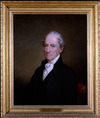The First World War
The political conflicts raised by Canadian participation in the South African War (1899–1902) deepened with the debates over the question of a Canadian navy [see The Election Campaign of 1911]. During the First World War, the issue of compulsory military service highlighted the divisions between English and French Canada [see Laurier, Leader of the Opposition (1911–19)]. By 1917 differences over conscription had become so contentious that they threatened confederation itself [see Conscription Divides Canada]. Quebec premier Sir Lomer GOUIN confronted the matter in the Legislative Assembly:
“In December 1917, in the face of a frequently acerbic campaign in the English-Canadian press to denounce the so-called ‘disloyalty’ of French Canadians and their rejection of compulsory military service, Gouin allowed one of his mlas, Joseph-Napoléon Francœur, to present a notice of motion stating that the province of Quebec would be prepared to accept the breaking up of the confederation pact if the other provinces considered it an obstacle to the development of Canada. Gouin made a vigorous and memorable defence of confederation at that time. After reminding his listeners that the federal system was the only one suitable for Canada, that separatism was impossible, and that confederation had brought notable benefits, the premier declared his confidence that the storm would pass. He was proud, he said, to be called a Canadian, and proud of his country, Canada. This part of his speech drew very positive reviews in the anglophone press. But at the same time, Gouin made a point of recalling the sufferings of ‘our fathers’ in the wake of insults and appeals to prejudices, and he declared that the slanders of the present moment were the work of a ‘small number’ and not the majority of anglophones. These references were probably intended to satisfy the Nationalistes in particular. At the end of the speech, Francœur withdrew his motion, declaring that it had had ‘the desired effect.’”
For more information see our projects on the First World War and Canada’s wartime prime ministers, as well as the following biographies.






![Original title: MIKAN 3194653 Sir Robert Borden during the Victory Loan Campaign. 1917 [74 KB, 607 X 480]](/bioimages/w600.11095.jpg)